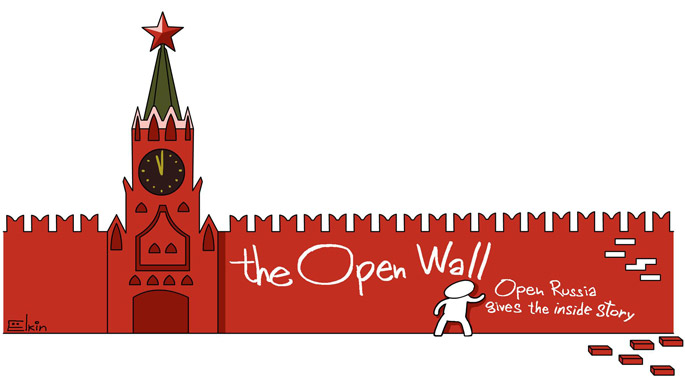Mytishchi-gate

Mytishchi-gate
The scandal currently brewing over alleged electoral foul play in Mytishchi, a town in Moscow Region, doesn’t say much for the new electoral commission chief.

By early December, the issue of the Duma elections seemed a closed chapter: the regime had secured its constitutional majority, the other Duma parties had issued ritual condemnations of the victors’ methods, and the non-parliamentary Yabloko party had failed in its attempt get the Supreme Court to review the election results.
But, at the eleventh hour, along came one Tatyana Yurasova – and catalysed a situation we shall dub Mytishchi-gate. Middle-aged, softly spoken, with short hair and modish glasses, Yurasova doesn’t look much like a hero. In her day job, she’s the chief editor of online health journal Zdravkom; as regards her socio-political activities, she served as an observer at the parliamentary and presidential elections in 2011-12, and was a voting member of District Voting Commission No. 1665 (Mytishchi) in 2016.
It was Tatyana Yurasova who, having tracked the movement of the records of votes polled around Mytishchi’s electoral system, uncovered mass fraud in favour of ruling party United Russia. As it turned out, the results had been openly tampered with: electoral observers received copies of the records featuring a particular set of numbers on the night following the election, but an entirely different dataset was subsequently entered into the automated electoral system. Non-systemic parties were systematically robbed, with United Russia the beneficiary; Yabloko, robbed of 20% of its vote, suffered more than anyone else. Of the 98 members of Mytishchi’s electoral commission, 68 were proved by Yurasova to have been complicit in the fraud.
Remarkably enough, Tatyana Yurasova came to undertake this investigation virtually by accident, having received a phone call from an observer who’d discovered the initial discrepancy in the figures. But what if she’d lacked the time to embark on such an undertaking, or decided against doing so? Would the Mytishchi falsifications have remained forever unchallenged?
Yurasova herself, however, has no wish to assume the mantle of a lone fighter: “When I held discussions with the parties, they were all completely taken aback by the discrepancies in the results. I thought to myself, Guys, you have such a massive number of records of votes polled… didn’t you try and do your own cross-checking? Society has to understand that if we want to monitor our voting results, we have to prepare just as seriously as they do. Only then will we be a match for them.”
Yurasova’s investigation, published on December 5 in the Novaya Gazeta newspaper, generated a huge public splash. Novaya Gazeta promptly began receiving similar reports of falsifications in Smolensk, Dagestan and other Moscow Region districts. Having processed the glut of incoming information, the paper concluded that fraud in favour of United Russia had been committed “on a national scale,” and announced its intention to “undertake a comprehensive review of September’s Duma elections.”
Yurasova’s investigation has been deemed vitally important by economist Sergei Romanchuk, who believes that the most crucial thing now is to make certain the falsifiers don’t go unpunished – and that the punishments meted out to them receive plenty of public attention: “In future,” he writes, “this will help to ensure a peaceful transfer of power, or else enable the ruling party to triumph for real in fair elections.”
Ella Pamfilova, for her part, pledged that “[i]f [the claims of violations] are true, then we, the Central Election Commission (CEC), will be the first to do everything possible to ensure that the perpetrators are punished, to take the matter to court and even annul the election results in […] Mytishchi.”
But opposition politician Dmitry Gudkov remains sceptical: “Not for a moment should we believe assurances to the effect that the ‘results could be reviewed.’ It is clearly not the CEC that decides such questions. They can annul the results – but they won’t. Not in Mytishchi, not in Smolensk Oblast, not in Dagestan – not anywhere.”
Russian netizens, meanwhile, reacted with considerable caution to Pamfilova’s pledge:
Zapadnay: “They’re really going to be punished? And what about those whose crimes have already been documented? Have they already been punished? If so, why does Pamfilova keep silent? She ought to tell the city and the world at large all about it so as to dissuade others from committing crimes against the state.”
Gekorn: “What about Saratov, where many polling stations recorded exactly the same level of United Russia support? And what about that figure of 98% in the North Caucasus? We’ve got to recognise that elections in this country are just one big falsification.”
The Kremlin’s intention had never been to make the elections fair, but, rather, to make them fairer, which is not at all the same thing. As for the results, certain people have clearly overexerted themselves at grassroots level… in an eminently predictable manner.
By the time we get around to the presidential elections of 2018, these local “initiatives” will be even more difficult to control: regional governors, competing with one another in their love for the president, will seek to demonstrate their allegiance to him in the only way they know how.
Civil society is faced with a choice: it can either resign itself to the non-competitiveness of the elections and sink into a lethargic torpor, or, taking a leaf out of Tatyana Yurasova’s book, it can speak out against the violations. The 2017 elections aren’t only about the president. They’re about anyone and everyone – more so than ever before.



